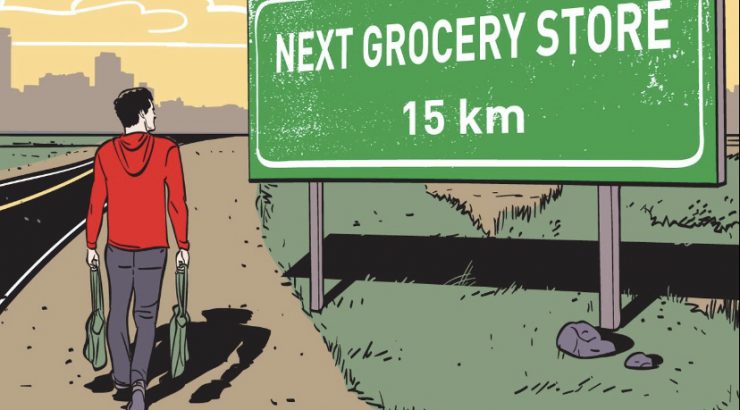
Intersectional Issues: Food Deserts An introduction to the inequities behind food deserts
August 26, 2020
Even before COVID-19 seemingly took over any form of normalcy, millions of Americans struggled to have consistent access to groceries. A food desert is an area where there is lack of access to nutritious and affordable food, oftentimes due to a combination of having to travel farther to find healthier food options and also being low-income. According to the USDA, people living in high poverty and less populated areas are more likely to live in a food desert than other low-income areas that are in rural highly populated urban areas. The same study found that the more that people of color lived in those less dense urban areas, the more likely it was considered a food desert. Without this easy access to somewhat nutritious food, those living in food deserts are subject to higher rates of health issues like obesity, cardiovascular disease, and diabetes.
Oftentimes, the only access to food in these low-income neighborhoods are corner stores carrying mostly processed food and food products with little to no fresh produce. It’s ironic yet also unfortunate that cheaper food likely happens to be the unhealthier option, leading to more health complications and in turn, more medical costs. For many Americans living in food deserts however, there is not much of a choice other than to resort to junk food instead of fresh produce.
Racial disparities within our institutions also exist in the consumers’ food product quality and safety. Because of this, it’s more likely that these food access issues stem from racial and economic inequalities in the United States. It’s likely that the simple placement of larger-scale supermarkets or health food stores would not solve the root cause of the problem, but rather dismantling systems of oppression to provide food desert communities at risk for things like proper access to healthy and affordable food.
Be sure to subscribe to our Green Panther Newsletter here! Also, make sure to follow us on Instagram @sustainchapman!